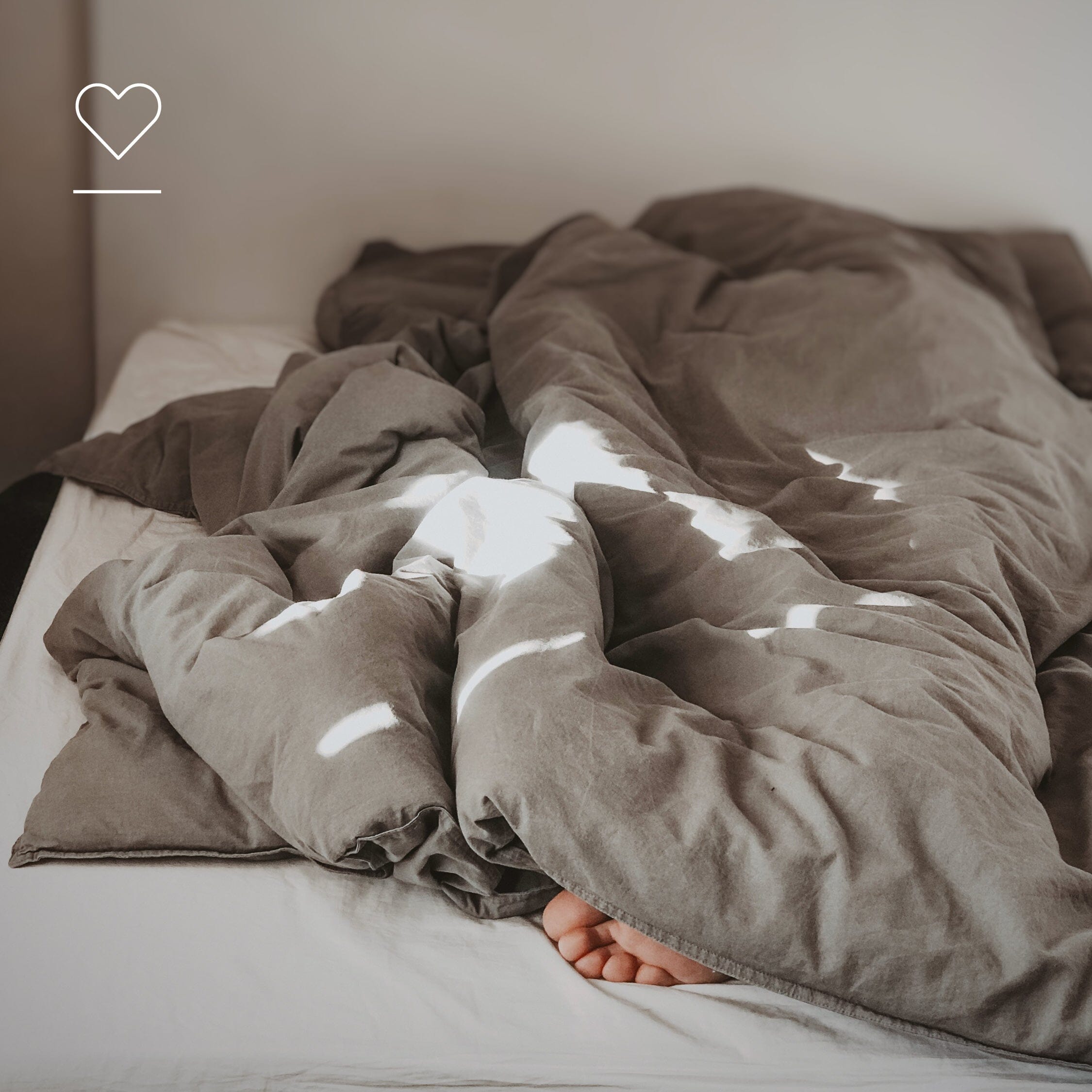Sleep is a vital part of your overall health and well-being. It plays a crucial role in the physical and mental repair and restoration of the body. A lack of sleep can lead to a wide range of negative effects on the body, including an increased risk of obesity, heart disease, diabetes, and depression.
Good sleep helps cognitive function, boosts immunity, and regulates hormones. It helps repair and rejuvenate the body and mind, improving mood, reducing stress and anxiety, and improving overall mental health. Studies have shown that people who sleep well tend to have better memory, attention, and concentration, which are all important cognitive abilities that tend to decline as we age.
On the other hand, poor sleep can detrimentally affect aging by increasing the risk of chronic diseases. Studies have shown that people who consistently get less than 7 hours of sleep per night are at an increased risk of developing chronic diseases, such as obesity and diabetes¹. This is likely because poor sleep disrupts the balance of hormones that regulate appetite and metabolism, leading to weight gain and an increased risk of metabolic disorders. Additionally, poor sleep also increases inflammation in the body, which is a known risk factor for many chronic diseases.
Poor sleep can also have a negative impact on your cognitive function as you age. Studies have shown that people who are sleep deprived perform worse on memory and learning tasks, have poorer attention and concentration, and are more prone to making irrational decisions. Increasing research suggests that disruptions in sleep and daily rhythms make the brain more susceptible to the build-up of beta-amyloid, a protein that harms brain function and is associated with several cognitive disorders, including Alzheimer's and Parkinson's disease dementia².
Sleep issues can also affect your emotional well-being. People who are sleep deprived are more likely to experience feelings of anxiety and depression and are more prone to mood swings. Lack of sleep impairs the brain and behavior's capacity to manage and express emotions, affecting both positive and negative emotions³.
Poor sleep can affect the body at a cellular level in several ways:
-
Inflammation: Poor sleep is known to increase inflammation in the body. This can contribute to a variety of health problems, including an increased risk of chronic diseases such as obesity, cardiovascular conditions and diabetes.
- Telomeres: Telomeres are protective caps on the ends of our chromosomes that play a role in aging. Studies have shown that people who are sleep deprived have shorter telomeres, which have been linked to an increased risk of age-related diseases⁴.
- Oxidative stress: Poor sleep can lead to an imbalance in the body's antioxidant and oxidative systems. This can cause damage to cells, proteins, and DNA, which can lead to an increased risk of age-related diseases.
- Hormonal changes: Poor sleep can disrupt the balance of hormones that regulate appetite and metabolism, leading to weight gain and an increased risk of metabolic disorders such as diabetes. It also reduces the production of growth hormone which is responsible for repairing and regenerating tissues, leading to weaker immune system, poor muscle and bone density, and wrinkles.
- Immune system: Poor sleep can weaken the immune system, making it harder for the body to fight off infections and diseases. This can lead to an increased risk of illness and an overall decline in health.
-
DNA repair: Sleep plays a crucial role in DNA repair and the maintenance of genomic stability. Poor sleep can impede the DNA repair process, leading to accumulation of DNA damage and increased risk of cancer.
Adequate sleep is essential for our physical and mental well-being, and chronic sleep deprivation can accelerate the aging process. It is important to maintain good sleep hygiene, including sticking to a consistent sleep schedule, avoiding caffeine and electronics before bed, and creating a comfortable sleep environment. Additionally, seeking medical attention if you are experiencing insomnia or other sleep disorders can help improve your overall quality of life as you age.
Suzy Walsh
BBA (Hons)., BNat., mNMHNZ
Registered Naturopath & Medical Herbalist
References:
¹ Sabia, S., Dugravot, et al. (2022). Association of sleep duration at age 50, 60, and 70 years with risk of multimorbidity in the UK: 25-year follow-up of the Whitehall II cohort study. PLOS Medicine, 19(10), e1004109. doi: 10.1371/journal.pmed.1004109
² You, J. C., et al. (2019). Association of β-amyloid burden with sleep dysfunction and cognitive impairment in elderly individuals with cognitive disorders. JAMA Network Open, 2(10), e1913383. doi: 10.1001/jamanetworkopen.2019.13383
³ Goldstein, A. N., & Walker, M. P. (2014). The role of sleep in emotional brain function. Annual Review of Clinical Psychology, 10(1), 679-708. doi: 10.1146/annurev-clinpsy-032813-153716
⁴ Sabot, D., Lovegrove, R., & Stapleton, P. (2023). The association between sleep quality and telomere length: A systematic literature review. Brain, Behavior, & Immunity - Health, 28, 100577. doi: 10.1016/j.bbih.2022.100577


![Never Grow Old - Longevity Issue [Nutrition Business Journal]](http://scienceresearchwellness.com/cdn/shop/articles/NBJ_Post_-_LinkedIn.jpg?v=1692742979&width=1500)
![Circulatory system care "vital" [NZHERALD]](http://scienceresearchwellness.com/cdn/shop/articles/SRW_-_News_Clip_-_Post_-_Cir1_-_D1_dfadc7dc-c57a-4f80-82bd-4fdb5ba5f0cd.jpg?v=1692742734&width=1500)
